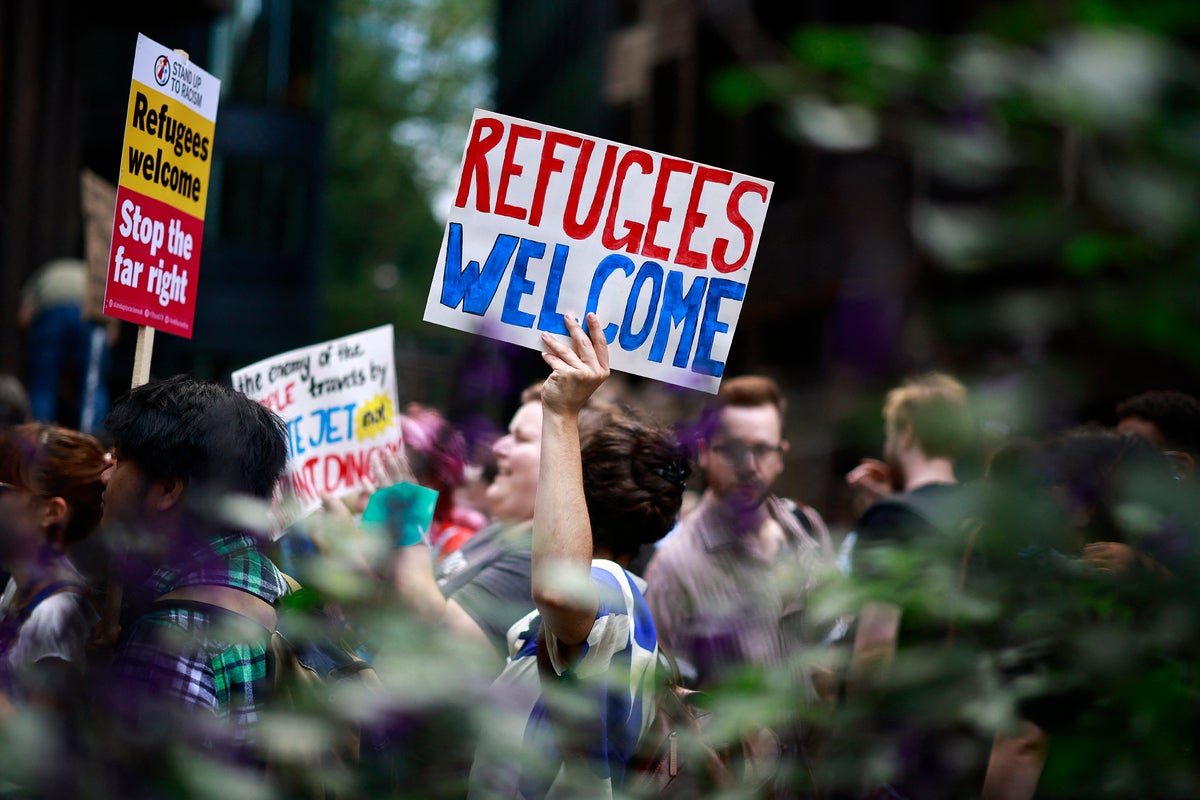MPs Urge UK to Resettle 5,000 Refugees Annually for Family Reunification
A group of MPs is urging the UK government to resettle 5,000 refugees yearly and simplify family reunification processes.
Politics
UK, Refugees, Family Reunification, Lord Dubs, APPG
London: A group of MPs wants the UK to resettle at least 5,000 refugees each year. They also want to make it easier for families to reunite. This call comes from a cross-party group of parliamentarians.
Lord Alf Dubs, a former child refugee, is leading the charge. He and others want the government to create safer routes for refugees. They also want to tackle people smuggling gangs more effectively.
The All-Party Parliamentary Group (APPG) on Refugees has made several recommendations. They suggest strengthening family reunion and resettlement schemes. They also propose a pilot humanitarian visa scheme for people from Sudan and Eritrea.
Currently, the UK resettlement scheme aims to bring in 5,000 refugees each year. However, it has consistently fallen short. Only 435 refugees were resettled in the year ending September 2024.
There are also delays in processing family reunion applications. Over 11,000 cases are currently backlogged, according to the MPs’ report.
Co-chairs Lord Dubs and Labour MP Laura Kyrke Smith say the current routes are too complex. They cause long separations for families who need to be together.
During a recent protest in London, people held signs saying “refugees welcome.” This demonstration highlighted the ongoing issues surrounding refugee treatment.
The MPs concluded that the lack of legal routes is leading to more irregular arrivals. They want to change immigration rules to allow refugee children in the UK to sponsor their close family members.
The report also noted a big difference in the number of refugees from Ukraine compared to those from Afghanistan. While many Ukrainians found refuge, far fewer Afghans have been resettled.
MPs are urging the government to commit to resettling 20,000 vulnerable Afghans. This is part of a separate scheme from the one for Afghans who worked with British forces.
The report criticizes the government’s inconsistent approach to safe and legal routes for refugees. It states that many facing persecution have limited options to seek asylum in the UK.
Recently, the government announced new criminal offenses for endangering lives at sea. This could lead to jail terms of up to five years.
Enver Solomon, chief executive of the Refugee Council, expressed concern. He worries that new offenses could also lead to the prosecution of refugees themselves.
The Home Office has been contacted for comments on these issues.
